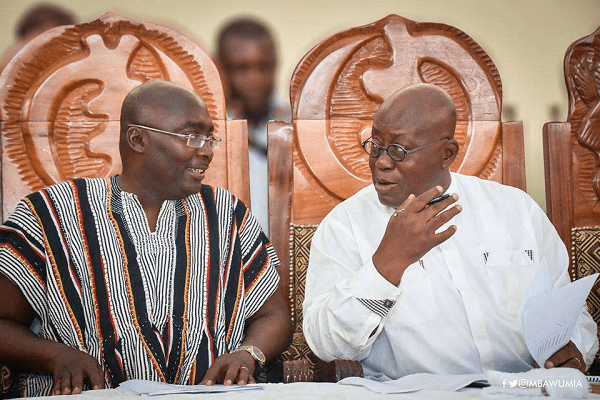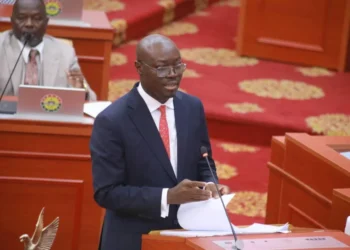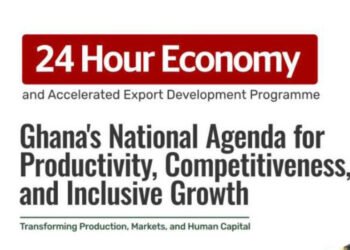A senior Political Science Lecturer at the University of Education, Winneba, Dr Thomas Prehi-Botchway has dissected the factors leading to the New Patriotic Party’s (NPP) defeat in the recent elections.
Speaking in an interview with The Vaultz News, he attributed the ruling party’s loss to the economic hardships faced by Ghanaians, environmental degradation, perceived arrogance of power, and poor governance, describing the outcome as a “referendum” on the Nana Akufo-Addo-Bawumia administration.
In his analysis, Dr Prehi-Botchway highlighted the centrality of economic challenges to the outgoing New Patriotic Party’s defeat and strongly accused the Vice President, Dr Mahamudu Bawumia of failing to leave to expectation.
“You see we were promised that an economic messiah was coming to save us from all the difficulties that we’re going through as a people. And people bought into the idea and wholeheartedly went out there to vote.
“And then in the 1st 4 years, COVID came and so there were certain excuses as to why they needed a second chance to do things well. And then things got out of hand from bad to worse”.
Dr Thomas Prehi-Botchway, a senior Political Science Lecturer at the University of Education, Winneba
He emphasised that Ghana’s economy is currently classified as junk, attributing it to the current government’s poor fiscal and monetary policies over the past eight years it has been in power.
Environmental Degradation, Arrogance of Power and Missteps in Leadership
Environmental concerns also weighed heavily in the election outcome, according to Dr. Prehi-Botchway. He criticized the government’s handling of illegal mining, or galamsey, which has wreaked havoc on the country’s water bodies and farmlands.
“Our lands are being turned virtually dunghill” in the name of mining for gold and other mineral resources land. People agitated, complained, said so many things, and held demonstrations including that of the Catholic priest.
“We saw what happened with organized labour eventually becoming disorganised. A lot of things have gone on in the country, and the government seems not to be listening to what the people that they are governing are saying”.
Dr Thomas Prehi-Botchway, a senior Political Science Lecturer at the University of Education, Winneba
The lecturer did not mince words in describing the administration’s perceived arrogance of power. He pointed to the prolonged tenure of Ken Ofori-Atta as Finance Minister as a glaring example.
“At a point, even members of the ruling party in Parliament demanded his removal. Yet, he was retained, and when relieved of his duties, he was reassigned within the same sector. This signalled to Ghanaians that their voices did not matter.”
Dr Thomas Prehi-Botchway, a senior Political Science Lecturer at the University of Education, Winneba
Dr. Prehi-Botchway also criticized the administration’s penchant for political grandstanding, including commissioning uncompleted roads and showcasing developmental achievements that did not align with on-the-ground realities.

Corruption and Governance Failures
The renowned political scientist further identified corruption and weakened governance institutions as contributing factors to the NPP’s defeat. He observed that over the past eight years, numerous allegations of corruption emerged, but no significant accountability measures were taken.
“Ghanaians have raised countless issues of corruption, but nobody seems to have been held accountable. Meanwhile, the masses are suffering,” he stressed. Dr. Prehi-Botchway described the election as a referendum on the Akufo-Addo-Bawumia administration.
He dismissed attempts to separate the Vice President from the President’s shortcomings, insisting that Dr. Mahamudu Bawumia, as a key member of the government, was equally culpable.
“Ghanaians are not children. Excuse my language, but even children think. The Vice President was not just a bystander; he worked alongside the President. The administration took the people for granted, and this is the outcome.”
Dr Thomas Prehi-Botchway, a senior Political Science Lecturer at the University of Education, Winneba
In Dr. Prehi-Botchway’s analysis, the NPP’s defeat was not merely a political loss but a reflection of widespread dissatisfaction with governance over the past eight years.
Economic hardship, environmental degradation, arrogance of power, corruption, and unfulfilled promises all converged to create what he described as a “humiliating defeat.”
His remarks serve as a cautionary tale for future administrations about the perils of neglecting the voices and concerns of the electorate.
READ ALSO: Corporate and Government Bonds Play Supporting Role in GSE’s Fixed Income Growth























